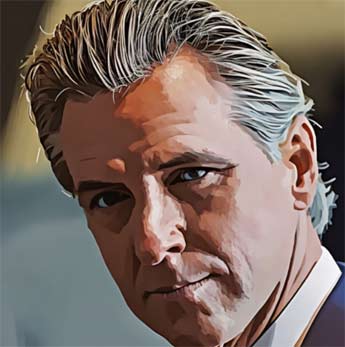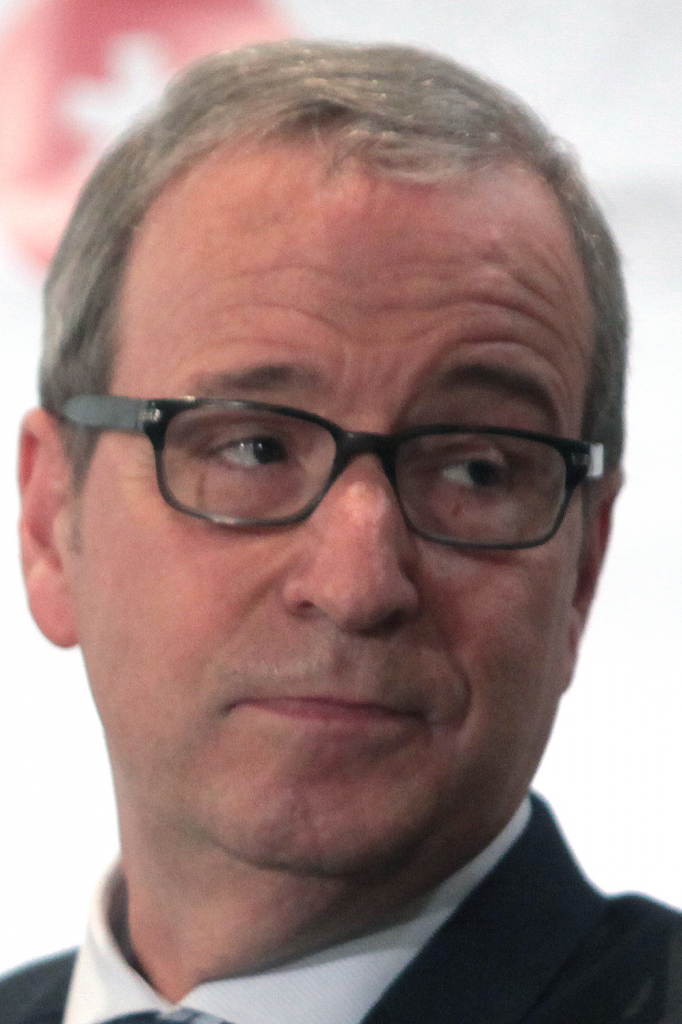
California Governor Gavin Newsom is providing more evidence this week that he's honing the political formula that could give Democrats their best chance of winning back the White House in 2028. That's true whether or not he's the candidate who ultimately benefits from the approach.
Newsom, who seems almost certain to seek the next Democratic presidential nomination, is doing two things at once. He's moved to the very head of the line among Democrats who have found ways to forcefully push back against President Donald Trump and his red state allies. The latest example is this week's session of the California state legislature, where Democrats are poised to approve Newsom's plan to offset the Texas Republican gerrymander of five Congressional seats by advancing a November ballot initiative that could ultimately net them five more seats of their own. At the same time, he's tilted toward the center on a surprisingly long list of polarizing issues, including expressing opposition to allowing transgender girls to play in school sports.
Taken together, these two approaches amount to a kind of confrontational centrism. Newsom's betting that indefatigably fighting Trump will satisfy enough liberal-leaning 2028 primary voters that he doesn't need to bend to ideological litmus tests that could weaken him in a general election. Put another way, he's wagering that enough Democrats will want a fighter more than a purist.
At a time when Democratic voters consistently deride their party's response to Trump as feeble, only a handful of party leaders (such as Senator Chris Murphy of Connecticut and Representative Alexandria Ocasio-Cortez of New York) have effectively identified with that frustration. But no Democrat has been as consistent - or conspicuous - as Newsom in confronting not only Trump but also the broader MAGA movement. As an antagonist to the president, Newsom "is more omnipresent in this media ecosystem than any other Democratic governor, or honestly any other Democrat, right now," says Dan Pfeiffer, the former White House communications director for Barack Obama and now co-host of Pod Save America, a podcast popular with base Democratic voters.
Newsom started assuming this role even before Trump's reelection. As far back as 2022, he positioned himself as the leading Democratic critic of the movement that was gathering speed in Republican-controlled states to roll back abortion, voting, LGBTQ and other rights. "Where the hell is my party? Where's the Democratic Party?" he asked in a clip that went viral among party activists. "Why aren't we standing up more firmly, more resolutely?"
Newsom has raised the volume in Trump's second term. Though he and Trump greeted each other warmly when the new president surveyed the damage from the Los Angeles wildfires, the two have collided on almost every front since.
The state has sued the administration over three dozen times already, nearly doubling its first-term pace. While the Democratic Congressional leadership seems comfortable contesting Trump only on the most familiar partisan ground - that his agenda benefits the rich at the expense of average families - Newsom has much more directly voiced the pervasive fear among grassroots Democrats that Trump is an aspiring authoritarian undermining democracy. Last week, when the president deployed the National Guard into Washington, D.C., former House Speaker Nancy Pelosi posted on social media that Trump acted "to distract" from his policy "blunders." Newsom posted: "This is what dictators do."
Newsom's energetic tussling with Trump has overshadowed the governor's ideological journey. Newsom began the process with surprisingly respectful conversations with MAGA mainstays on his podcast, but has moved well beyond that to repeatedly moderate his policy agenda on issues that have lately hurt his party.
In a four hour (!) interview last month with conservative podcast host Shawn Ryan, Newsom didn't just reiterate his criticism of allowing transgender girls to play school sports. He also indicated that he is now struggling with allowing gender-affirming care for minors, criticized former President Joe Biden's record on the border, struck hardline notes on crime, touted the California legislation he's passed to clear homeless encampments and to encourage housing construction and highlighted his cooperation with ICE around deportation of violent criminals. (He condemned Trump's deportation drive against other undocumented migrants).
During that interview, Newsom several times quoted Bill Clinton's centrist mantra from the 1992 presidential campaign: that Democratic policy should uphold "opportunity, responsibility and community." In that race, Clinton emphatically broke from the liberal consensus on cultural issues such as welfare reform and crime while offering a pointed populist critique of Republican economic priorities; Newsom's camp clearly sees that as a model if he runs in 2028. One of his advisers told me they expect that among Democratic primary voters there will be "a lot more tolerance for eschewing the extremes. We are not going to be back to a Bill Clinton moment, but there are shades of 1992 in here."
In all, Newsom is rejecting the belief of many liberal activists that effectively fighting Trump requires the party to move left. But much still could go wrong in the governor's emerging approach. His ballot initiative could fail. Longer-term, Newsom may be flouting the party consensus on more issues than the Democratic primary electorate, which is more uniformly liberal than in Clinton's day, will accept. A bigger risk is that primary voters focused on electability may doubt that a California governor and former San Francisco mayor who projects a slicked-back West Coast cool can really connect with heartland voters, no matter what policies he promotes.
Even with those obstacles, Newsom's confrontational centrism has given him an early lead on the potential 2028 field by developing both an identity that's intrigued party activists and a theory about how Democrats can navigate the primary without digging insurmountable holes for the general election.
(COMMENT, BELOW)
Ronald Brownstein is a Bloomberg Opinion columnist covering politics and policy. He is also a CNN analyst and previously worked for The Atlantic, The National Journal and the Los Angeles Times. He has won multiple professional awards and is the author or editor of seven books.


 Contact The Editor
Contact The Editor
 Articles By This Author
Articles By This Author